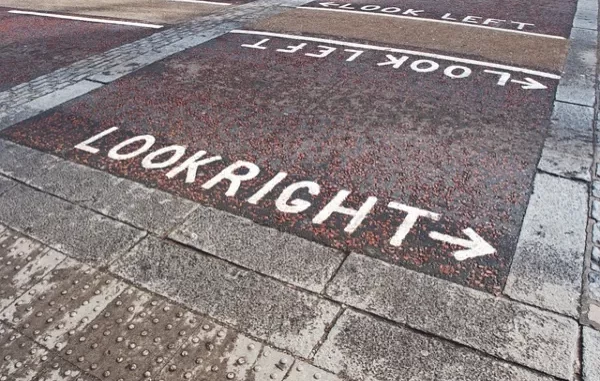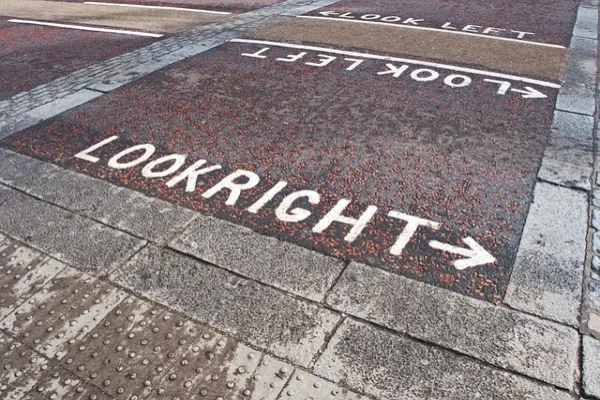
The formation of political parties is a complex process that has evolved over centuries. It is rooted in the basic need of people to organize and advance their respective political interests. The earliest political parties arose in the late 17th century in England, out of the struggle between the Whigs and Tories.
These parties were based on ideological differences concerning the power of the monarchy and the role of the Church of England. In the United States, the creation of the first two political parties, the Federalists and the Democratic-Republicans, was driven by differing views on the role of the federal government.
In the modern era, political parties are formed based on a variety of ideological differences such as taxation, economic policy, social issues, and foreign policy.
What are the Origins of Political Parties?
Political parties are a fundamental part of any democracy and have been in existence since the late 18th century. The origin of political parties can be traced to the founding of the United States of America. The Federalist Party, founded by Alexander Hamilton and James Madison, and the Democratic-Republican Party, founded by Thomas Jefferson and James Monroe, were the first two major parties in the United States.
The Federalists were strongly in favor of a strong central government, while the Democratic-Republicans favored states’ rights. This ideological difference formed the basis of the first two-party system in the U.S. and was a major factor in the development of other political parties.
The development of political parties in America was also heavily influenced by the emergence of public opinion and the concept of mass politics. The creation of parties enabled people to organize around specific policies and candidates. This allowed for a more organized way to determine who would represent the interests of the people in government.
In Europe, political parties emerged as a result of the French Revolution. The National Assembly in France was dominated by two main groups: the Jacobins, who favored a strong central government, and the Girondins, who favored a decentralized one. This divide between the two factions formed the basis of the first two-party system in Europe.
The development of political parties in Europe was also heavily influenced by the growth of the industrial revolution and the emergence of socialist and labor parties. The rise of the modern welfare state in Europe also led to the emergence of political parties that supported economic and social reform.
Political parties are now a common feature in democracies around the world and play an important role in maintaining the balance of power and ensuring that all voices are heard and rights are respected.
Factors that Contributed to the Development of Political Parties
Political parties are an integral part of the American political system, and their development has been shaped by a variety of factors. One of the most important factors that contributed to the development of political parties was the emergence of political ideologies. In the early days of the United States, two distinct political ideologies began to take shape: Federalism and Democratic-Republicanism. Federalists supported a strong central government with a strong national economy, while Democratic-Republicans favored a decentralized government and a more agrarian economy. This ideological divide led to the emergence of two distinct political parties: the Federalist Party and the Democratic-Republican Party.
Another factor that contributed to the development of political parties was the emergence of organized political interest groups. These groups, such as the Anti-Federalists, the Whigs, and the Democratic-Republicans, sought to influence government policy and shape the political landscape in their favor. These groups and their supporters coalesced around particular ideologies and formed the basis for the emergence of political parties.
Finally, the emergence of a two-party system was largely driven by the desire of political actors to win elections. As a result, politicians began forming alliances with like-minded individuals in order to gain more votes and win elections. This led to the establishment of political parties, which provided a way for politicians to organize and coordinate their efforts to win elections.
In sum, the development of political parties in the United States was shaped by a variety of factors, including the emergence of political ideologies, organized interest groups, and the desire of political actors to win elections. These factors have had a lasting impact on the American political system and continue to shape the political landscape today.
The Role of Ideology in Political Parties

Political parties are integral to the functioning of a modern democracy. Their primary role is to participate in the election process and to ensure the election of candidates who will represent the interests of the people. Political parties also provide a platform for public debate and discussion on issues affecting the country and its citizens.
The role of ideology in political parties is to provide a set of beliefs and values which guide the actions and decisions of the party. Ideology acts as a guideline for the party, and can inform the policies it advocates, the candidates it selects, and the campaigns it runs. Political parties may have single-issue or multi-issue ideologies, or a combination of both. Single-issue ideologies focus on one particular issue, such as the economy, education, or the environment, while multi-issue ideologies seek to address a range of topics.
Ideology can also be used to distinguish one political party from another. Ideological differences between parties relate to the beliefs and values of each party, and can be used to identify one party as more conservative or more liberal than another. This can help to define the political landscape and determine the direction of policy.
Ideology also plays an important role in the decision-making process. Political parties tend to be guided by their core beliefs and values when making decisions about policies, candidates, and campaigns. Ideology can be used as a tool to decide which policies to pursue and which candidates to support, or to determine which campaigns to pursue.
Ideology can be a powerful force in politics, as it shapes the policies that political parties pursue and the candidates they select. Ideology can also be used as a tool to distinguish one party from another and to define the direction of policy. It is therefore important for political parties to clearly articulate and explain their ideologies and their beliefs and values. This will ensure that the party’s decisions and actions are in line with its ideological principles.
Exploring the Causes of Political Party Formation
Political party formation has been a defining feature of democratic states throughout history. The causes of political party formation are varied, but generally center around the need to organize and represent different interests and ideologies within a given society. This article will provide an overview of the key factors that have been identified as influencing the emergence of political parties.
The first cause of political party formation is the presence of disagreements or disputes between different groups in society. These disagreements may be ideological, religious, or related to economic policy. As people become increasingly engaged in political debates, they may form alliances to promote their particular interests. This can lead to the formation of political parties as a way of representing their views in the political arena.
The second cause of political party formation is the presence of a charismatic leader or figurehead. This individual may be able to galvanize support for their views and mobilize like-minded individuals to form a political party. This was seen in the formation of the Republican Party in the United States, which was largely the result of Abraham Lincoln’s leadership.
The third cause is the presence of a major political or economic event. This event can create a sense of urgency and a need for a unified response. In the United States, the Civil War was a major event that led to the formation of the Republican Party. Similarly, the Great Depression was a major event that led to the formation of the Democratic Party.
Finally, the fourth cause of political party formation is the presence of a need for change. This need can arise from a dissatisfaction with the status quo or from a desire to create a better future. This was seen in the formation of both the Republican and Democratic Parties in the United States, which were both created in response to the need for change in the country.
In conclusion, the causes of political party formation are varied and complex. They are often driven by disagreements or disputes between different groups in society, the presence of a charismatic leader, major political or economic events, and a need for change. Understanding these factors can help to better understand the history and development of political parties in the United States and elsewhere.
Investigating the History of Political Party Formation
The history of political party formation is complex and has long been studied by scholars. It dates back to the ancient Greeks and has evolved over the centuries. In the United States, the first political parties emerged in the late eighteenth century. These parties were formed in response to the competing interests of the Founding Fathers and the growing need for organized political action.
The first US political parties were the Federalists and the Democratic-Republicans. The Federalists, led by Alexander Hamilton, supported a strong central government and favored the interests of the wealthy and powerful. The Democratic-Republicans, led by Thomas Jefferson, sought to limit the power of the central government and to protect the rights of the common man. This split was seen during the election of 1796, when the Federalists won the presidency and the Democratic-Republicans won the House of Representatives.
As time went on, other political parties emerged. In the 1830s, the Whig Party was formed in opposition to Andrew Jackson and his Democratic Party. The Whigs wanted to limit the power of the president and to protect the interests of the wealthy. The Republican Party was founded in the 1850s, in response to the increasing divide between the North and South. The Republican Party was dedicated to promoting the interests of the North and promoting the notion of free labor.
Throughout the twentieth century, the Republican and Democratic Parties became increasingly powerful and organized. This period saw a number of important developments in US politics. The Progressive Movement of the early twentieth century sought to combat the power of large corporations and to promote the interests of the working class. Following World War II, the civil rights movement emerged in an effort to promote equality and justice for African Americans and other minority groups.
Today, the United States has a two-party system, with the Republican and Democratic Parties dominating the political landscape. Despite this dominance, the history of political party formation in the United States has been marked by a constant struggle for power and influence. As new issues and interests emerge, new parties may emerge in response. It is this dynamic that has shaped the political system of the United States throughout its history.
The formation of political parties has been driven by a diverse set of factors, from the development of a two-party system, to the emergence of ideological divisions, to the increasing need for a sophisticated and organized approach to policymaking. As a result, political parties have become an integral part of the democratic process, providing a platform for individuals to organize and collaborate to achieve their shared goals and objectives.

Leave a Reply